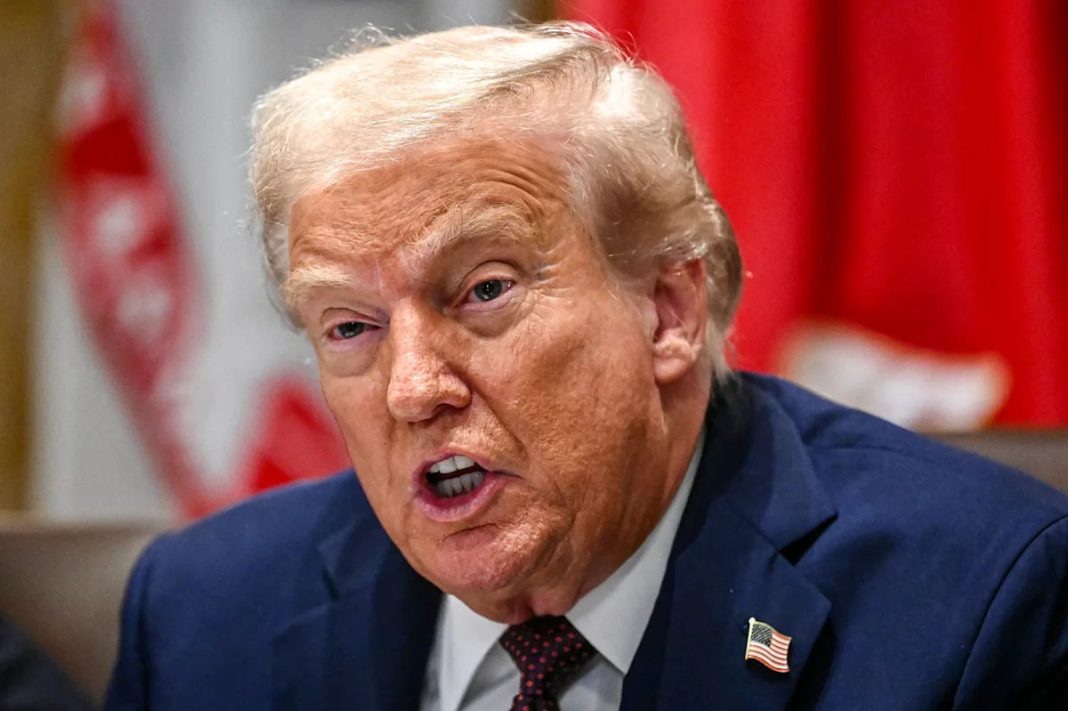In his sharply differing reactions to two high-profile assassinations of political figures this year, the president of the United States has effectively encouraged the public to apply a partisan lens to the value of human life.
The two killings in question — a lone wolf assassination of former Minnesota House Speaker Melissa Hortman in June and the shooting of Turning Point USA founder Charlie Kirk at a Utah Valley University speaking event this past week — elicited very different kinds of treatment from the White House. President Donald Trump gave scant attention to Hortman’s killing, while he framed the killing of Kirk as a cataclysmic national tragedy and a political rallying cry for the right.
Republican lives matter more than Democratic lives, Trump is effectively telling his base. And in a shocking comment on “Fox & Friends” on Friday, Trump appeared to use Kirk’s assassination to explicitly designate political violence a partisan issue too, by defending violent right-wing extremists as sharing his political goals of bringing down “crime” and left-wing extremists as “the problem.”
In response to the murder of Hortman, Trump offered a brief, impersonal condemnation of her killing on Truth Social, stating that “such horrific violence will not be tolerated.” He didn’t do much else. He did not offer a substantial eulogy for her, or deliver an address on political violence, as he did after Kirk’s death. Unlike former President Joe Biden, Trump did not attend the funeral. The day after Hortman’s killing, when Trump was asked if he had called Minnesota Gov. Tim Walz, he said, “I could be nice and call, but why waste time?” Trump suggested that part of the reason he didn’t want to call Walz was because he thought Walz was to blame for the killing, or at least the events leading up to it. That claim was nonsense. But peddling that narrative did allow Trump to divert attention from the fact that authorities found the suspected shooter had a hit list that named mostly Democratic politicians or figures tied to abortion rights, and that his close childhood friend said he voted for Trump.
In response to Kirk’s killing, Trump responded with tremendous urgency. He immediately issued an order to lower American flags to half-staff at the White House, all public buildings, U.S. embassies and military posts. He announced he would award Kirk the Presidential Medal of Freedom posthumously. He delivered a wrathful four-minute video address from the White House condemning Kirk’s assassination and promising vengeance against the left. As my colleague Anthony Fisher notes, during that address he made “wildly irresponsible assumptions about the then-unknown suspected killer’s motives. He completely ignored right-wing violence (like the kind he incited in Washington on Jan. 6, 2021), and he explicitly threatened to bring down the force of government on his political opponents.”
It was bad enough that Trump showed such divergent responses to the equally indefensible assassinations of Hortman and Kirk — and used the latter to promote the idea of a political crackdown on the left. But his appearance on Fox News on Friday morning involved what I found to be a genuinely jaw-dropping escalation, as he appeared to suggest that violence from the right was more defensible than violence from the left. Fox News host Ainsley Earhardt noted that there are radicals on both the right and the left and expressed concern about people cheering for Kirk’s death before asking Trump, “How do we fix this country?” He replied:
I’ll tell you something that’s going to get me in trouble, but I couldn’t care less. The radicals on the right oftentimes are radical because they don’t want to see crime. They don’t want to see crime. They’re saying, ‘We don’t want these people coming in. We don’t want you burning our shopping centers. We don’t want you shooting our people in the middle of the street.’ The radicals on the left are the problem. And they’re vicious, and they’re horrible, and they’re politically savvy.
What Trump appears to be saying is that left-wing radicals are a problem, while right-wing extremists are, in essence, part of his political project and therefore don’t deserve condemnation — or at least not the kind of condemnation that those on the left do. He is effectively telegraphing the idea that a certain degree of political violence on the right could be acceptable — or at least should be seen as politically sympathetic and well-intentioned. As right-wing extremists are reactivating and rallying around Kirk’s death as a pretext for revenge against the left, Trump’s new statement echoes his “stand back and stand by” order to the Proud Boys in 2020 before they stormed the U.S. Capitol on Jan. 6. It would be reasonable in this context for right-wing extremists to surmise that Trump is again signaling that he could be lax on enforcement or try to offer them some kind of immunity — just as he did by commuting the sentences of Proud Boys and pardoning their leader.
In a democracy, all political violence should be considered entirely unacceptable, no matter the ideology of the person committing the act or on the receiving end of it. Both the deaths of Hortman and Kirk were terrible tragedies and completely unjustifiable. But in his selective mourning and politicization of their deaths, Trump suggested one tragedy — more importantly, one type of tragedy — mattered more.
This article was originally published on MSNBC.com

